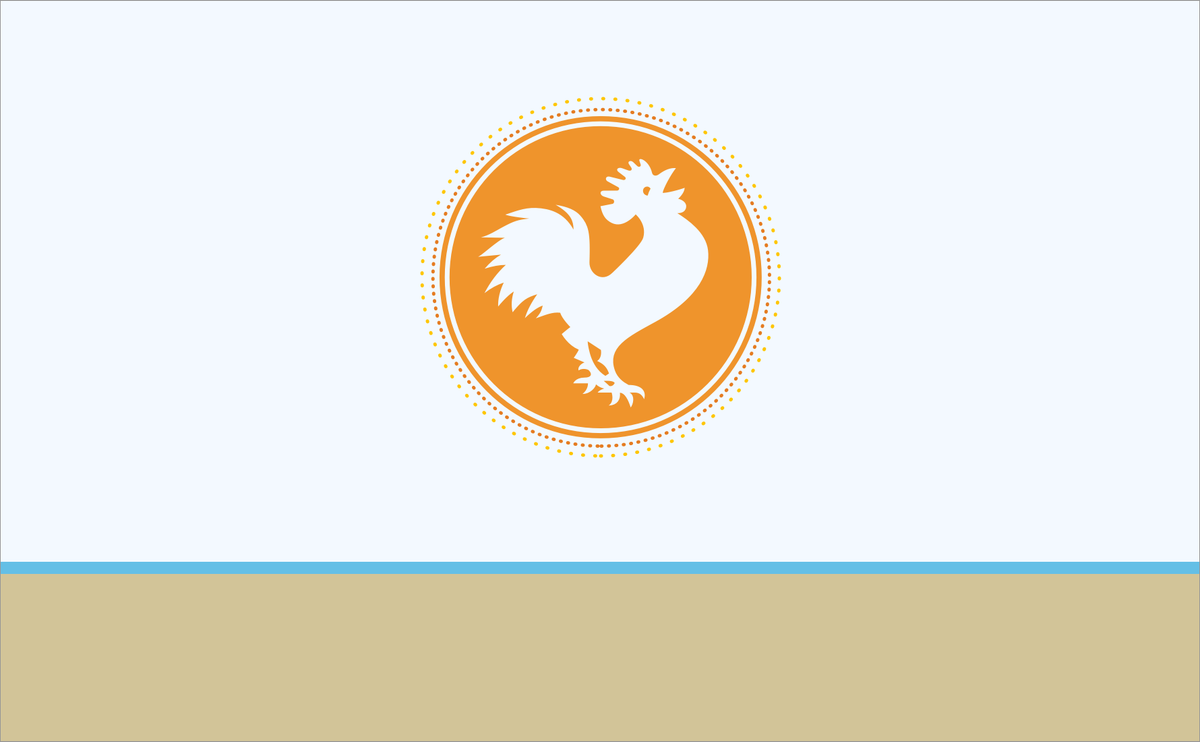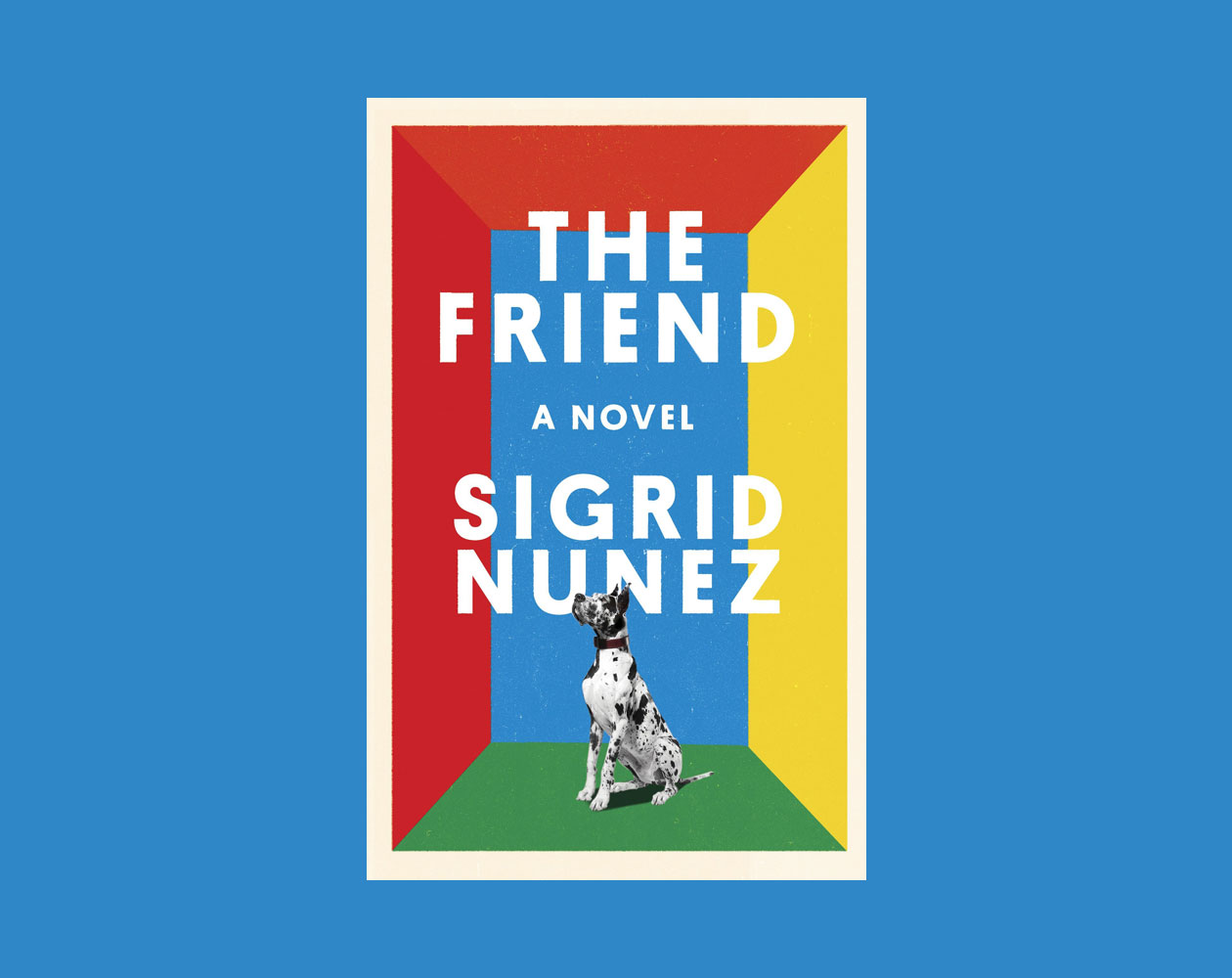The 2018 Rooster Summer Reading Challenge: Week 12
It's the second-to-last week of the 2018 Rooster Summer Reading Challenge, which means two big things: Novelist Emma Straub decides between August's two books and the commentariat votes for the book of the summer.

Welcome to the 2018 Rooster Summer Reading Challenge. We’ve selected six Rooster-worthy works of fiction from 2018 to read through August—two per month—and once a week we meet here to discuss our reading progress.
Each month we’re joined by a new judge, who discusses the books with us and then selects which of that month’s two books heads to our summer finale—where you, the readers, decide which novel wins the 2018 Rooster Summer Reading Challenge and an automatic berth in the 2019 Tournament of Books.
(Which kinda counts for a lot, seeing how our 2017 summer winner, Fever Dream, stampeded through the 2018 ToB, eventually taking home the Rooster. By the way, if all of this is new to you, check out this Rooster primer.)
To select our summer books, each of our judges chose a work of fiction they were particularly excited about this year. The other three books were selected by the ToB Committee according to our normal criteria—novels first published in English in the calendar year that we feel are excellent and interesting. (To avoid conflicts, none of the judges were assigned the books they selected personally.)
A special thanks to our Sustaining Members for making another year of the Rooster Summer Reading Challenge possible. Find out why The Morning News and the Tournament of Books depend on your support, and please consider becoming a Sustaining Member or making a one-time donation.
This month we’re reading Kudos by Rachel Cusk and The Friend by Sigrid Nunez, with Emma Straub.
- See the reading list and discussion schedule
- Catch up on previous chats: Tomb Song (first half, second half), An American Marriage (first half, second half), Circe (first half, second half), Census (first half, second half), Kudos (first half, second half), The Friend (first half)
- Jump into today’s discussion in the comments
Please note: We receive a cut from purchases made through the book links in this article.
Nozlee Samadzadeh: After three months and six books, we’ve reached our final discussion in the 2018 Rooster Summer Reading Challenge—and we’ve got a lot to pack in this week! First, we’ll finish up the second half of The Friend by Sigrid Nunez. Then our August judge, Emma Straub, decides this month’s matchup: The Friend versus Kudos by Rachel Cusk. And finally, you vote for which of our three summer finalists wins an automatic spot in the 2019 Tournament of Books.
Emma Straub is a bestselling novelist whose books have been published in 20 countries, and the co-owner of Books Are Magic, an independent bookstore in Brooklyn, NY.
Nozlee Samadzadeh is the producer of the Tournament of Books and a developer at Vox Media.
Last week we left off our discussion of The Friend unsure of what would happen to Apollo, the harlequin Great Dane the narrator has accidentally adopted after the suicide of her dear friend. In the nick of time she succeeds in registering him as an emotional support animal, allowing him to stay in her rent-stabilized but pet-free New York apartment. Her codependence with Apollo deepens as she continues to try to make sense of her friend’s death—and indeed of a variety of literary suicides, from Virginia Woolf to Wittgenstein.
I found myself dogearing (ha) page after page for gems like this one, about how the narrator comes to read aloud to Apollo for hours at a time:
I decide to make reading aloud part of our routine. Knowing how this might look to others, though, I don’t tell anyone. But then there’s a lot in these pages I’ve never told anyone.
It’s curious how the act of writing leads to confession.
Not that it doesn’t also lead to lying your head off.
Or this one, which rang guiltily true to me:
At the bookstore. A friend’s most recent novel, published last year, is now out in paperback. Chagrined to realize that not only have I still not read it, I had forgotten all about it.
The second half of the book gets very introspective about what it means to read, to be a writer, and to teach writing! Did you find yourself agreeing with the narrator?

When a woman unexpectedly loses her lifelong best friend and mentor, she finds herself burdened with the unwanted dog he has left behind: a huge Great Dane traumatized by the inexplicable disappearance of its master. While others worry that grief has made her a victim of magical thinking, the woman refuses to be separated from the dog. Isolated from the rest of the world, she becomes increasingly obsessed with its care, and determined to fathom its heart. (Amazon / IndieBound / Powell’s)
Book description excerpted from publisher’s summary and edited for length.
Emma Straub: Yes, yes, a thousand times yes. Not that I am exactly the same sort of writer, or teacher of writing, but it did ring very true. It did also pique my nosy nosiness in a way that Kudos did not, where I found myself wondering about Nunez herself and having dinner with her and having her as a mentor and am I going too deep here?
Nozlee: We talked about this with the first half of Kudos, wondering which literary festival Faye is attending. I want to know who Nunez has in her head when she writes about forgetting about a friend’s novel!
That is, unless the anecdote is truly drawn from the ether. Let’s get spoiler-y about the penultimate chapter of the book. After 180 pages of assuming the book represents reality, the narrator suddenly asks us to imagine a world in which a woman goes to visit her dear friend, a writer who owns a miniature dachshund and who has recently attempted suicide. They have a conversation about his recovery, which writers get to tell which stories, and the book the woman is writing, a reimagining of the man’s suicide attempt that features instead a Great Dane.
How did it feel to have the curtain pulled back?
Emma: Writers are so smart and tricky! That was my reaction, that this is the point of this book, to offer the reader a fictional worth presented as truth, then to add a layer of truth behind that reality. Two fictional realities! Man! Yes! Because of course whenever one reads a book about a writer, one blurs the line a little between author and character. This was a reminder that fiction is fiction, and that slipperiness is possible on the page where it isn’t in life. It’s like Nunez is playing a delightful joke, saying, oh, ha ha, do you think that’s me? Do you? Well, check this shit out. Imagine the Backstreet Boys singing “Quit Playing Games With My Heart,” only I’m also winking, because I want Nunez to play games with my heart like this forever. It was so good.
Nozlee: Yes! I can’t remember the last time I was so happily surprised by a shift in narrative like that. I felt tricked, but in a fun way.
It was also fascinating to see the narrator’s relationship with her friend directly. He is just as we imagine him: He wants to fuck his therapist in the psych ward even though he is “old enough to be her gramps” and he exhibits Andy Rooney-like levels of crotchetiness when the narrator suggests that writers should own their privilege.
I don’t know if I could be friends with this guy, but there was a joy to seeing the narrator meet her match when it comes to fluently quoting works of literature from Svetlana Alexievich to Doris Lessing. I guess one question that comes to mind is, what kind of person writes an entire book imagining that their best friend and conversational partner isn’t there anymore?
Emma: A writer, of course. That is the smallest leap of all, and one that any fiction writer can surely relate to—to have a glimpse of something in your real life, like a peek through the curtain, whether it’s falling in love with a stranger on the subway or watching your child nearly run into traffic, any small moment that could have gone differently, and to immediately imagine an alternate reality where the other thing happened, or where another choice was made. I think that’s probably how 75 percent of all novels begin. (My number may be off, but you get what I mean.)

Nozlee: It seems to be a familiar tactic for Nunez too. I was eyeing her backlog to decide what to read next and came upon Mitz: The Marmoset of Bloomsbury, an imagining of the life of Virginia Woolf’s pet marmoset—like The Friend, both an “alternate reality” novel and an animal novel.
And now: Which of our two slim, possibly autobiographically inspired, definitely meta-literary books do you pick to move on for a chance at a spot in the Tournament of Books next March?
Emma: With apologies for not doing my very best Top Chef judgment, where I pretend to like both choices equally well, I choose The Friend. It was immensely pleasurable to read. Two paws up.
Nozlee: We have a winner! In the comments of our conversation last week, it became clear that for both of these books, the conceit either worked for any given reader, or very much did not. It also brings us back to the very first thing you said this month, which is that you “believe that there are readers for all books, but not all books are for all readers.”
It’s been a real pleasure being a reader of these two books with you, Emma. Thank you for joining us!
Emma: Oh, Nozlee, thank you for having me! It is always satisfying to engage with a book that you don’t love, actually. I personally no longer feel guilt or pressure about finishing books I don’t like, but it was also a nice challenge, sort of completing-a-spin-class level of pleasurable pain.
Subscribe to the Rooster newsletter
You will receive email from The Tournament of Books. Opt out at any time. (View our privacy policy.)
Nozlee: Now it’s time for you to vote! The poll for this summer’s three winning books will be open through Tuesday, Aug. 28 at midnight ET. Will it be our June finalist, An American Marriage by Tayari Jones? July’s winning book, Census by Jesse Ball? Or our August victor, The Friend?
We’ll find out next Wednesday, when we announce our summer champion. In the meantime, let us know what you thought of The Friend, tell us which book you’re gunning for in the poll, give kudos to the departing Kudos—or all of the above!—in the comments.
